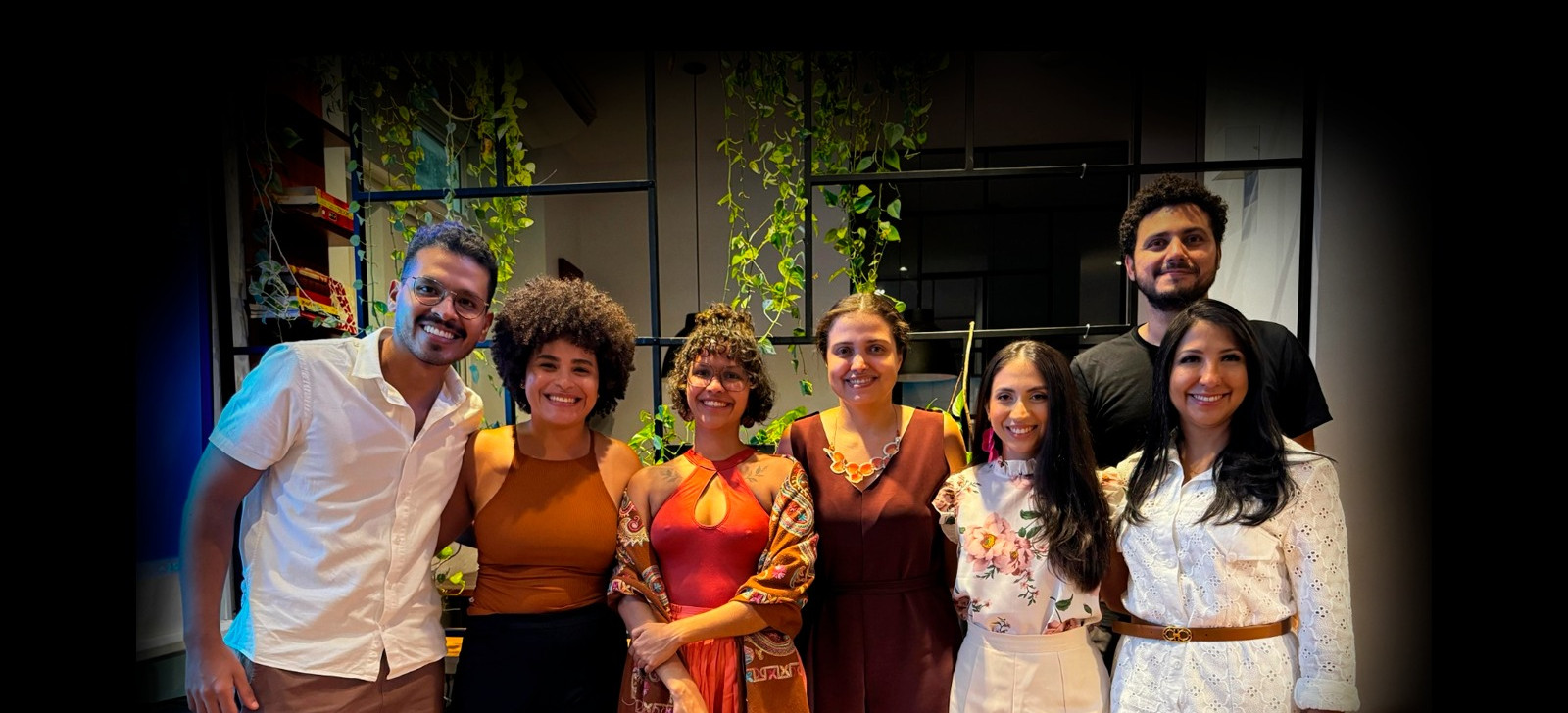From Baku to Belém: networks of amazon experts meet to discuss COP30
18 de July de 2024

Raisa de Araújo – From Cenarium
BELÉM (PA) – Debating the structure of the Belém Metropolitan Region and preparing for the rounds of negotiations for the United Nations Climate Conference (COP30), which will be held in the capital of Pará in November 2025, have been the subject of government and civil society meetings in the region since the host city was announced in May 2023.
In Belém, networks of climate experts have been organizing to broaden the debate by reinforcing the Amazonian people as protagonists in decision-making spaces and preparing society for the event. This was the proposal of Rede Amazônidas pelo Clima, Laclima and Canto Coworking, which organized a round of talks on the evening of Tuesday 17th to discuss topics such as climate finance, NDC targets, Belém’s structure, food systems, the importance of young people in debates and other issues that will help build the Amazon climate agenda.

For lawyer Ciro Brito, who is part of the Laclima network and who mediated the debate, the event is important for expanding reflections on issues related to COP30, as well as disseminating messages from experts, researchers and civil society organizations. “This helps the population to take up the debate and take ownership of the COP and the solutions to climate change and the importance of expanding this to sub-national and national policies”, said the lawyer.
From Baku to Belém
One of the first issues raised in the debate was climate finance. Lawyer Lise Tupiassu introduced this issue by talking about the amount of money that is close to 1 trillion dollars in resources earmarked for climate change, but which is being allocated to strategies that are not essential. That’s why it’s important to go deeper into the financing system.
Before arriving in Belem, the COP will pass through the city of Baku, Azerbaijan, later this year, when the countries will talk about climate finance and the paths this funding will take, in other words, how it will happen, where it will be stored; whether it will be a loan or a fund and how all this investment will help the global south in particular to make a fair and sustainable energy transition.

At the Amazon COP, the world will be debating the NDC targets, where Brazil itself will be the main reference for the signatory countries of the Paris Agreement. During the meeting on Tuesday, Waleska Queiroz, Leonildes Nazar and Hannah Balieiro brought to the debate the role of youth and the involvement of civil society in achieving the NDC targets. They argued, above all, that this is a COP for democracy and that the climate crisis is not environmental, it is social, cultural, and mainly affects people.
For Leonildes Nazar, from the Institute for Climate and Society (ICS), it is possible to make the energy transition without involving society. “Is it possible to take cars off the streets and stop greenhouse gas emissions into the atmosphere (…) is that what we want?” she asked.
City structure
Anyone who walks the streets of the Belém Metropolitan Region can confirm that the city has been transformed into a huge construction site. All the main points in the region are being renovated. Lucas Nassar, from Laboratório da Cidade (City Laboratory), who is also part of the COP30 Committee, guaranteed that Belém is on time, or even ahead of schedule in terms of works to host the conference, compared to the last COPs which welcomed hundreds of participants.
Around 50,000 participants are expected and it is hoped that by adding up the accommodation in hotels, hostels, ships and containers, and the cooperation of government and private actions, it will be possible to host at least 45,000 participants. In addition, the bus fleet will be renewed by more than 50%, with 750 buses. Currently, the fleet circulating in the RMB is 110 buses.
Expectations for the event
Belém is starting to breathe COP on all sides. Ciro Brito comments that expectations are high for the event, including in relation to issues that go beyond the topics to be negotiated at the COP. “It’s understandable because an event as large as this isn’t usually held in Belém. But Brazil is internationally recognized as having the most organized and mobilized civil society in the world,” he concluded.
Read more: 500 days away from COP30, Belém has challenges beyond infrastructure

